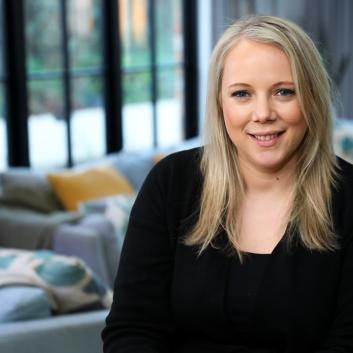Startup fills climate data gap with AI intelligence to boost decarbonisation
Despite the skyrocketing number of net-zero emission pledges set by countries, companies, and other entities, greenhouse gas emissions still need to be reduced by 43 per cent by 2030 and reach net zero by 2050 globally, according to the United Nations' latest figures.
While carbon management is becoming increasingly a core business activity, collecting and analysing data presents challenges since emissions must be tracked across direct, indirect and value chain activities as these inputs are classified as Scope 1, 2 and 3 emissions in reporting systems.
Lara Obst, Co-Founder and Chief Climate Officer at ClimateChoice, a Berlin-based climate tech company, highlights that supply chain emissions typically account for over 80 per cent of a company’s total carbon footprint.
“We chose to focus on Scope 3 emissions because they represent a significant but often overlooked part of the decarbonisation journey,” she explains, adding that this area is a critical blind spot for many organisations.

“With upcoming regulations like the European Corporate Sustainability Reporting Directive (CSRD) requiring over 50,000 companies to report and address Scope 3 emissions starting in 2025, taking action is no longer optional — it’s essential.”
ClimateChoice provides an AI-first climate intelligence platform specifically designed for procurement and climate teams to empower businesses to accelerate Scope 3 decarbonisation through informed climate choices.
Lara had her “climate aha moment” in 2014 when studying the IPCC* report, which made her realise that 50% of global emissions are concentrated in just eight international supply chains.
She says this recognition fuels her daily work since she firmly believes that addressing this area can transform an overwhelming challenge into a manageable one.
“Our goal is to empower sustainability and procurement leaders with the tools and support they need to overcome these complexities and achieve their Scope 3 reduction targets.
This involves gathering data from hundreds or thousands of suppliers, assessing their climate maturity, accelerating sustainable procurement processes, and implementing structured decarbonisation roadmaps.”
Climate data management presents various challenges, as Lara describes that decision-makers struggle with insufficient input on supplier emissions and climate efforts, which leads to a lack of transparency.
Relying on manual methods like emails and Excel sheets also makes data collection inefficient and prone to errors, slowing progress. In addition, suppliers are often overwhelmed by repetitive requests and unclear processes, leading to lower participation and slower adoption of climate initiatives.
“Our platform automates data collection from publicly available sources, such as sustainability reports, websites and other databases, to create initial climate profiles for suppliers. Companies can then invite their suppliers to enrich these profiles, avoiding the need to start from scratch,”
Lara explains what makes ClimatChoice unique.
“This approach eliminates inefficiencies, enhances transparency, and fosters effective supplier engagement, setting the stage for collaborative decarbonisation efforts.”
ClimateChoice is building a global network of climate-conscious businesses, already having users from over 140 countries, and expanding its reach through an expert-led peer learning initiative, which currently includes 40 leading companies.
One of their recent collaborations with global tech giant Lenovo demonstrates the power of joint climate action through innovative, data-centric approaches as they engaged the multinational company`s international network in decarbonisation efforts.
Leveraging their AI-driven data platform, Lara and her team first analysed a vast amount of public data, typically covering over 100 detailed data points per supplier, to create individualised ClimateChoice Scorecards for each partner, followed by activating accounts that offered secure additional data sharing – including emission metrics, relevant initiatives and climate targets.
“This two-way data flow provided all participants with real-time climate performance benchmarks and tailored feedback, fostering transparency and collaboration across the supply chain,” Lara recalls.
“As a result, Lenovo achieved a Gold rating for climate leadership, while its partners collectively reached a Silver-equivalent rating.“
She adds that companies cannot comply with regulations, effectively track improvements, or build trust with stakeholders without accurate and transparent data, so ClimateChoice strives to turn transparency into action.
Apart from constantly developing and improving their platform, Lara shares that raising awareness and promoting the potential in managing Scope 3 emissions is also an important part of their work.
Winning the Green Startup Slam competition at the Greentech Festival (GTF) Los Angeles event in November was an outstanding opportunity for her to connect with sustainability leaders and impact investors overseas.
Reflecting on this achievement, Lara says: “Being able to share our mission on stage was already a highlight, but winning the competition against such innovative changemakers was beyond anything I anticipated.
This recognition reaffirms that we’re addressing a pressing global problem – one that resonates with many seeking impactful, scalable solutions.”

Milestones like this further inspire ClimateChoice as a startup to continue driving meaningful action and contributing to the collective effort of turning climate ambitions into tangible results.
“The entire experience at GTF was very inspiring, and it reinforced the importance of knowledge sharing and global networks in achieving our shared climate goals.”
ClimateChoice also offers white papers such as the Scope 3 Strategy Canvas or the Best Practice Guide as part of their educational outreach, in addition to hosting learning programmes and fostering a community of practitioners.
Looking into the future, Lara shares: “Securing $2 million in funding in 2023 has enabled us to scale our platform across industries and geographies, significantly expanding global supply chain coverage. Our next big goal is establishing climate-smart supply chains as the industry standard, driving systemic change and accelerating decarbonisation at scale.”
* IPCC report - Intergovernmental Panel on Climate Change produces assesment reports on climate change
















